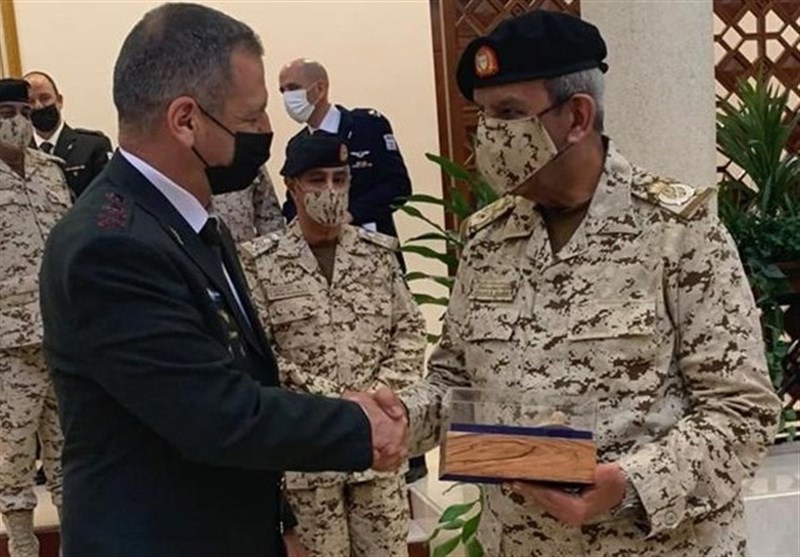Arash Saffar told the Strategic Council on Foreign Relations that Qatar does not need to deploy Israeli defense platforms in its soil and therefore there is serious speculation of deception in the meeting.
Referring to the reports published by Zionist reports and some media about this meeting which took place in the headquarters of the US Fifth Fleet in Qatar in recent days, Saffar said there are doubts in the media and the Qataries have not released any official position yet and have not either confirmed or denied this news.
“The Qatari foreign minister has repeatedly stressed that the country is reluctant to normalize relations with the Zionist regime until an independent Palestinian state is formed with East al-Quds as its capital. However, Qatar and the Israeli regime have already had contacts, and Qatar, as Hamas’s largest financier in Gaza, has had political and behind-the-scene contacts with the Israelis, and even Qatar aid has reached Gaza with the coordination of the Zionist regime; On this basis, however, it cannot be said that relations between the two sides have entered the phase of normalization and, like Bahrain or the UAE, have joined the so-called Ibrahim peace process.”.
Qatar not feeling any threat from Iran
This expert of West Asia affairs said this news has been published by the Ilfa News Website which is a Saudi-owned London-based media, adding that although it has been reported that in the meeting Iran and its drone capability were discussed, and that the Israeli side proposed the deployment of Israeli air defense systems in Qatar, it should be taken into consideration that Qatar does not feel any threat from Iran and its military forces.
“It seems that due to the presence of Al-Adeed Air Base near Doha and the extensive economic and security relations between Qatar and the United States, these relations will develop more than before and the country will benefit more from US military assistance.” he said, referring to the White House announcement that Qatar is the US main ally outside the NATO.
Saffar added that given Qatar’s hosting of the Al-Adeed military base, Doha has always been concerned that Qatar could suffer if the situation between Iran and the United States gets out of control–an issue that has called into question the country’s security and Qatar’s efforts to reduce tensions between Iran and the United States are made in this regard; But given the existence of this military base, the Qataris do not need to deploy Israeli defense systems in their territory.
Saffar said Qatar, unlike the UAE which has a strong desire to buy an Israeli defense system, has not made such a request. The Zionist regime is also not willing to provide these systems to any country before normalizing relations with it. For these reasons, the mechanism of holding this meeting should be viewed with skepticism.
Efforts to deceive Qatar
He explained that there is serious speculation that some kind of deception took place during the meeting and that the Qataris did not want it which seems likely. In addition, the reports published about this meeting do not seem very logical.
Asked about the objectives behind the release of the news about this meeting considering its anti-Iran angle, he said the Israeli regime knows that any level of its relations with any country in the region is sensitive for Iran and could become an obstacle to the development of relations between Iran and that country. As we have seen, Netanyahu’s trip to Muscat and his meeting with the late Sultan Qaboos, the then king of Oman, made Iran unpleasant and Tehran did not consider it in Oman’s interest.
Saffar said some believed that the transfer of the role of mediator between Iran and the United States from Oman to Qatar had been influenced by this issue.
“Certainly, the normalization of the UAE’s relations with the Zionist regime is also one of the obstacles to the development of Iran’s relations with the UAE. From Tel Aviv’s point of view, the very news of the Qatar-Israel talks also creates such an impression in the minds of Iranian decision-makers, and this is a positive achievement for them, and they evaluate the outcomes in their own interests.”.
Referring to the expansion of relations between Iran and Qatar especially after the siege of Qatar, he explained the extensive dimensions of mutual relations between the two countries in various areas and Doha’s efforts to paly a role in the JCPOA talks.
“The publication of this news is purposeful and is in the interests of the Zionist regime. Even if the regime fails to take serious action to normalize relations, it will consider the consequences of publishing this news as an achievement.”
Reasons behind the silence of Qatari officials
Referring to the silence of Qatari officials and media towards the publication of this news by Saudi-Zionist media, he said “the silence of the Qatari authorities can be assessed from two aspects; Either the entirety of the meeting has been questioned by them, or the meeting had not been pre-planned and had taken place outside the system of Qatari political decisions and protocols, and today it has become an issue for the Qataris who have not yet been able to reach a conclusion over a meeting which might have taken place.”










0 Comments